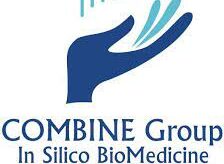Innovations in information and communication technology infuse all branches of science, including life sciences. Nevertheless, healthcare is historically slow in adopting technological innovation, compared with other industrial sectors. In recent years, new approaches in modelling and simulation have started to provide important insights in biomedicine, opening the way for their potential use in the reduction, refinement, and partial substitution of both animal and human experimentation.
In light of this evidence, the European Parliament and the United States Congress made similar recommendations to their respective regulators to allow wider use of modelling and simulation within the regulatory process. In the context of in silico medicine, the term ‘in silico clinical trials’ refers to the development of patient-specific models to form virtual cohorts to test the safety and/or efficacy of new drugs and of new medical devices.

Moreover, it could be envisaged that a virtual set of patients could complement a clinical trial (reducing the number of enrolled patients and improving statistical significance), and/or advise clinical decisions. COMBINE group works also on the current state of in silico clinical trials and outlines directions for a full-scale adoption of patient-specific modelling and simulation in the regulatory evaluation of medical products. In particular, we will focus on the development of vaccine therapies, which represents, in our opinion, an ideal target for this innovative approach.
In this context, we are developing innovative scientific and technological in-silico trials solutions for product design, development and assessment of drugs and other biomedical products. Our computational modelling framework is able to simulate and predict the outcome of vaccination strategies in a personalized fashion with the aim to deliver a validated in silico platform capable to integrate and empower the standard clinical trials for the testing of treatments in patients.

